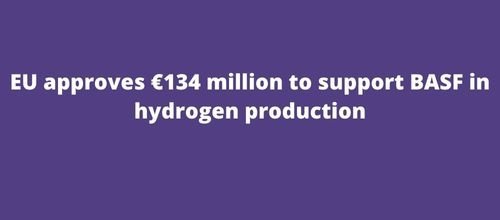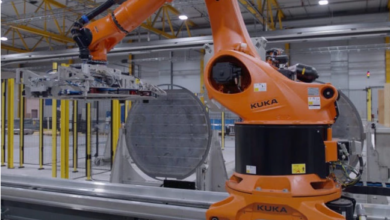EU approves €134 million to support BASF in hydrogen production
It will help Germany replace fossil-based hydrogen in a hard-to-decarbonise industry.

The European Commission has approved, under EU State aid rules, a €134 million German measure to support BASF SE in producing renewable hydrogen, aiming to decarbonise its chemical production processes and promote hydrogen use in the transport sector.
The measure contributes to achieving the EU Hydrogen Strategy and the European Green Deal targets while helping reduce dependence on Russian fossil fuels and fast forward the green transition in line with the REPowerEU Plan.
The decision follows the approvals on 15 July 2022 and 21 September 2022 of two Important Projects of Common European Interest (IPCEI ‘Hy2Tech’ and IPCEI ‘Hy2Use’) in the hydrogen value chain. BASF’s project was selected by Germany in the context of an open call to form part of an IPCEI on hydrogen technologies and systems, which resulted in the two approved IPCEIs. However, given its characteristics and objectives, it was better suited for assessment under the Guidelines on State aid for climate, environmental protection and energy 2022.
The measure will support BASF’s production of renewable hydrogen mainly to replace fossil-based hydrogen in BASF’s chemical production processes. Additional renewable hydrogen produced will be delivered for emerging hydrogen mobility applications (e.g. hydrogen-powered trucks or buses).
The aid, which will take the form of a direct grant, will support the construction and installation of a large-scale electrolyser at BASF’s Ludwigshafen site, which will have an annual production capacity of 54 MW and produce approximately 5,000 tonnes of renewable hydrogen and 40,000 tonnes of oxygen per year. The electrolyser is envisaged to start operating in 2025.
The project is expected to avoid the release of 565,305 tonnes of carbon dioxide over the 15 years of expected operation of the electrolyser. In addition, renewable hydrogen will be produced solely with electricity from renewable sources to minimise greenhouse gas emissions.
Margrethe Vestager, EVP in charge of competition policy, said, “This €134 million measure enables Germany to help BASF step up its renewable hydrogen production capacities, thereby contributing to the greening of the chemical value chain and of the transport sector.”
